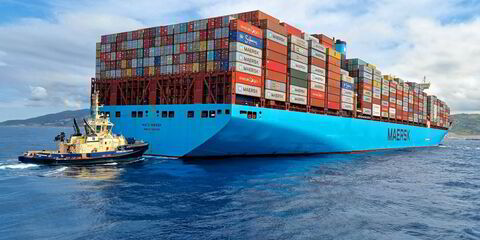New European Union fuel rules will see non-compliant owners paying small penalties initially, Clarksons Research has calculated.
But over the years these will ramp up to such levels that fuel oil becomes prohibitively expensive, analyst Sarah Holden has revealed.
The FuelEU Maritime regime will enter into effect in January, establishing a regulatory framework for the transition to less carbon-intensive marine fuels, with requirements tightening over time.
From 2025 to 2029, a vessel’s average greenhouse gas intensity over a year must be at least 2% below the baseline of 91.16 gCO2/MJ.
This rules out the sole use of fuel oil.
By 2050, the figure will be 80% below the baseline.
“FuelEU Maritime will impact a large number of ships. The global fleet has, on average, spent 17% of the time this year on EU voyages or in EU ports, while 38% of ships 5,000-plus gt (about 15,000) have made an EU port call,” Holden said.
Owners will either have to change their fuel mix, join compliance pools or pay up.
“In the short term, with only small reductions required in annual fuel intensity against a backdrop of limited supply of low/zero-emission fuels today, a small amount of lower-emission fuel usage may suffice for compliance,” she said.
Holden gave the theoretical example of a 2015-built MR product tanker trading between the US and EU becoming compliant using a biofuel blend such as B30 for 10% of the time.
More challenging
One vessel using only B30 would enable overall compliance for a pool with eight other equivalent ships using fuel oil.
Penalties are priced at €2,400 ($2,500) per tonne of very low-sulphur fuel oil used over the limit.
This will be increased if penalties are incurred for consecutive years.
Holden said this is “fairly limited”, equating to $500 per day in 2025 for the notional MR.
“However, with greenhouse gas intensity limits tightening over time, compliance will become more challenging ahead, with greater uptake of cleaner fuels required,” she said.
By 2050, the theoretical penalty for the MR would rise to $17,000 per day, or $58,000 per day if it has paid penalties every year, Holden calculated.
“FuelEU Maritime is bringing further complexity to operational, commercial and fuel choice decisions,” she said.
“However regulations evolve ahead, 2025 will be another key marker on shipping’s decarbonisation pathway.”





